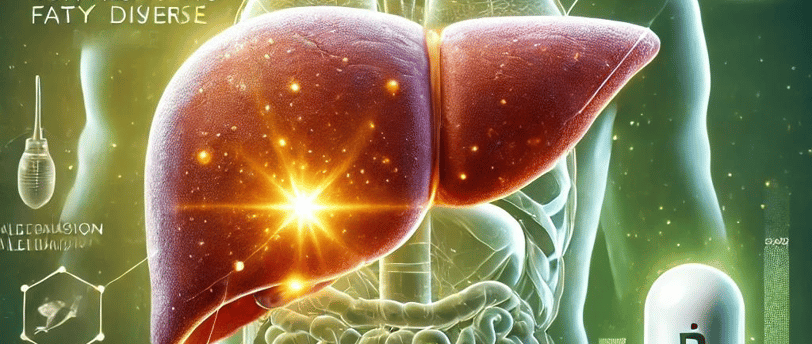AMAZING natural health products backed by research
Understanding Non-Alcoholic Fatty Liver Disease (NAFLD)
Non-alcoholic fatty liver disease (NAFLD) affects 25% to 30% of adults globally, with higher prevalence in regions with obesity and metabolic syndrome. Learn about its impact and statistics.
AlexanderJ
8/30/20242 min read


Comparison of delta-tocotrienol and alpha-tocopherol effects on hepatic steatosis and inflammatory biomarkers in patients with non-alcoholic fatty liver disease: A randomized double-blind active-controlled trial
Muhammad Amjad Pervez a, Dilshad Ahmed Khan a, Shakeel Ahmed Mirza b, Atiq Ur Rehman Slehria c, Uzma Nisar c, Mohammad Aamir
The above document is a research study comparing the effects of delta-tocotrienol (δ-tocotrienol) and alpha-tocopherol (α-tocopherol) on non-alcoholic fatty liver disease (NAFLD). NAFLD is a condition where fat builds up in the liver, leading to liver inflammation and potentially progressing to more severe liver damage, such as cirrhosis or liver cancer.
A Summary Taken from the Above Paper:
Which Vitamin E ?
Key Findings
Improvement in Liver Fat and Insulin Resistance: Both δ-tocotrienol and α-tocopherol were effective in reducing liver fat content and improving insulin resistance in patients with NAFLD over the 48-week study period. This suggests that these compounds can help in managing the accumulation of fat in the liver, which is a central issue in NAFLD.
Anti-inflammatory Effects: δ-tocotrienol was found to be more potent than α-tocopherol in reducing inflammation. Specifically, δ-tocotrienol led to greater decreases in inflammatory markers such as interleukin-6 (IL-6) and tumor necrosis factor-alpha (TNF-α). This is significant because inflammation plays a crucial role in the progression of NAFLD to more severe liver diseases.
Reduction in Body Weight: The study showed that δ-tocotrienol led to a greater reduction in body weight compared to α-tocopherol. Since weight loss is one of the primary recommendations for managing NAFLD, this suggests that δ-tocotrienol might be particularly beneficial for overweight or obese patients with this condition.
Reduction in Liver Cell Death (Apoptosis): δ-tocotrienol also showed a stronger effect in reducing liver cell death, which is an important factor in preventing the progression of NAFLD to more severe liver conditions like fibrosis or cirrhosis.
Safety: No adverse effects were reported from either supplement, indicating that both δ-tocotrienol and α-tocopherol are safe for long-term use in NAFLD patients.
Layman Explanation
If you have liver disease, especially NAFLD, this study suggests that taking a supplement called δ-tocotrienol might be particularly helpful. δ-tocotrienol is a form of vitamin E that can help reduce the amount of fat in your liver, lower inflammation, and decrease liver cell damage, which are all important in managing your liver condition. It also helps with weight loss, which is often recommended as part of the treatment for NAFLD.
While another form of vitamin E, α-tocopherol, is also beneficial, δ-tocotrienol appears to have stronger effects in some key areas, making it a potentially better option for people with NAFLD. Plus, it's safe to use over a long period without causing any harm.
Recommendation
If you're dealing with NAFLD, incorporating δ-tocotrienol into your treatment plan, alongside lifestyle changes like diet and exercise, could offer significant benefits in managing your liver condition and preventing further damage.
